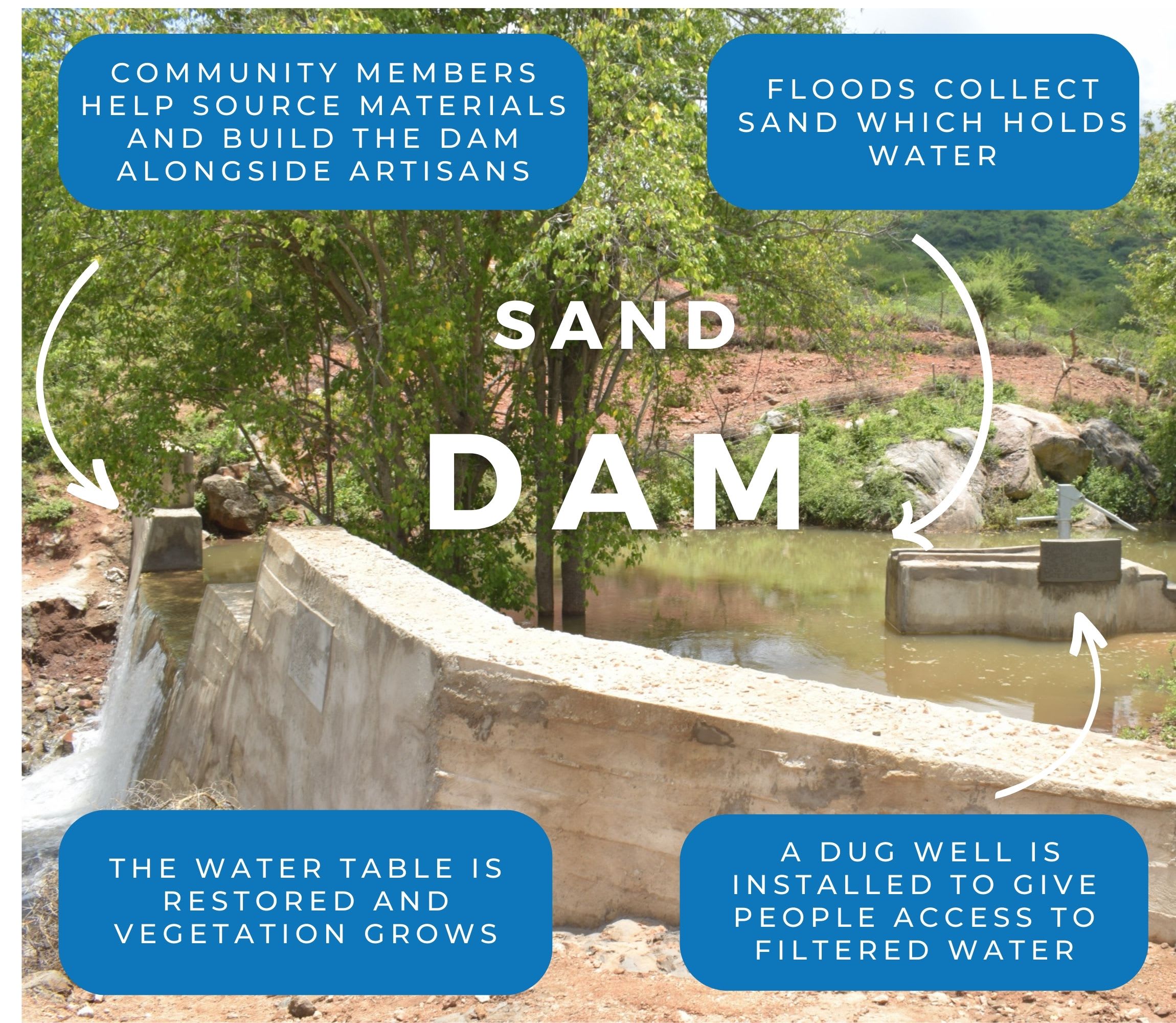Kaketi Village is a peaceful and rural area with a community of more than 500 households spread across the community. People here own large pieces of land that feature thick shrubs and bushes of indigenous and exotic tree species.
The average day begins at 5:00 am. Women prepare breakfast and start the journey to go and fetch water. Men, at times, join the women during the dry season. But typically the men go run their errands on their farms or travel to informal labor jobs in the morning. Women will sometimes spend their whole day at the water source, especially during the dry seasons. They use a variety of sources, from scoop holes dug into dry riverbeds until they hit water, to rivers, or water points over 30 minutes away from their homes 1-way.
Most times they get back home in the afternoon very tired. They then have to perform the household chores and maybe go back to the water source for more water. Afterward, they prepare supper and have dinner as a family. The cycle continues like that every day for this community.
In the drought periods as some water sources dry up, the women trek for very long distances to fetch water. These strains have reduced substantially thanks to the completion of a sand dam and well in this area last year. However, some members still have to walk for long distances on the rough terrains to fetch water. More than half of the 1,500 people living here are not close enough to the well.
"Life is very hard with an inadequate water supply. The current water point has very fresh and clean water for use, which is highly appreciated, however, it's still far from my home. Walking for long distances is very tiring as the terrain is rough, slopy, and very steep. No other work can be done because all we do is search for water," said Elizabeth Nzuki, a farmer in the community.
Some people still travel more than 30 minutes each way to get water and will travel even longer in order to avoid lines. The chore has been known to consume most of their time thus hindering them from engaging in other productive activities.
What We Can Do:
Our main entry point into Kaketi Community has been the Kalawa People Living with HIV Self-Help Group, which is comprised of households that are working together to address water and food scarcity in their region. These members will be our hands and feet in both constructing water projects and spreading the message of good hygiene and sanitation to everyone.
Sand Dam
After the community picked the ideal spot, our technical team went in and proved the viability by finding a good foundation of bedrock. Now, our engineers are busy drawing up the blueprints.
We are unified with this community to address the water shortage. As more sand dams are built, the environment will continue to transform. As the sand dams mature and build up more sand, the water tables will rise. Along with this sand dam, a hand-dug well will be installed to give community members an easy, safe way to access that water.
Building this sand dam along with the well in this community will help bring clean water closer to hundreds of people living here.
Training
These community members currently do their best to practice good hygiene and sanitation, but their severe lack of water has been a big hindrance to reaching their fullest potential.
We will hold hygiene and sanitation training sessions with the Kalawa People Living with HIV Self-Help Group and other community members to teach about important hygiene practices and daily habits to establish at the personal, household, and community level. This training will help to ensure that participants have the knowledge they need to make the most out of their new water point as soon as water is flowing.
One of the most important topics we plan to cover is the handling, storage, and treatment of water. Having a clean water source will be extremely helpful, but it is useless if water gets contaminated by the time it is consumed. We will also emphasize the importance of handwashing.
We and the community strongly believe that all of these components will work together to improve living standards here, which will help to unlock the potential for these community members to live better, healthier lives.
We typically work with self-help groups for 3 to 5 years on multiple water projects. We will conduct follow-up visits and refresher trainings during this period and remain in contact with the group after all of the projects are completed to support their efforts to improve sanitation and hygiene.

 Sand Dam
Sand Dam
 Rehabilitation Project
Rehabilitation Project
































